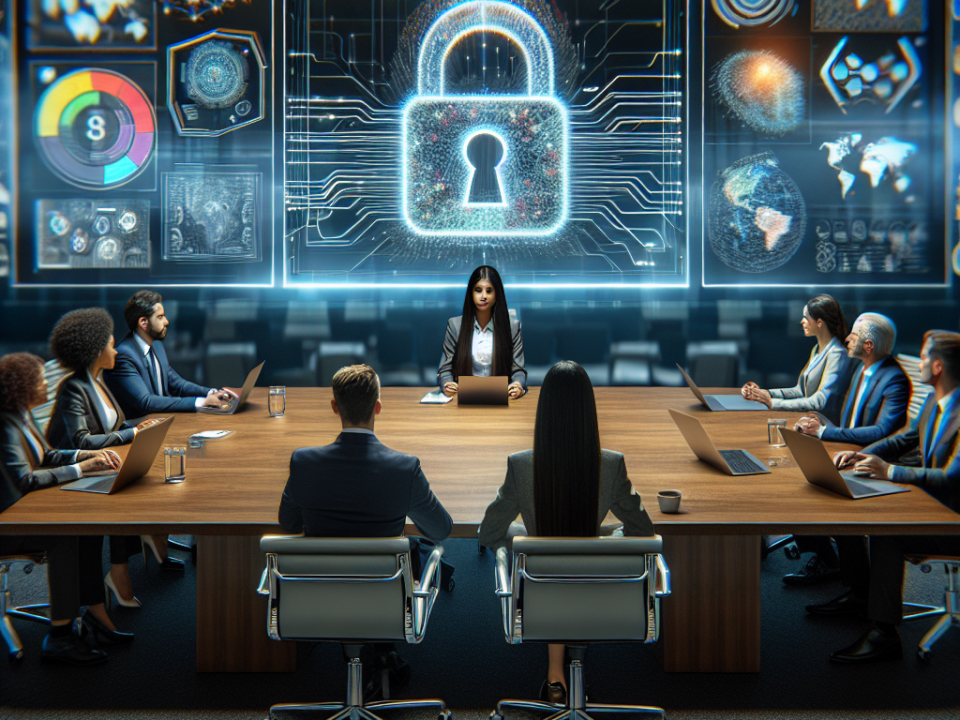
Unlocking the Future: How Regulatory Frameworks Shape Cybersecurity Practices
August 14, 2025
Staying Ahead of the Curve: Key Trends in Cybersecurity Regulation
August 15, 2025Why vCISOs Are Essential for Remote Work Security
As organizations adapt to the rapidly changing business landscape, the shift toward remote work has become more pronounced than ever. This evolution, while offering flexibility and accessibility, also brings significant security challenges. Amid these challenges, virtual Chief Information Security Officers (vCISOs) have emerged as vital partners for organizations aiming to safeguard their digital environments. Here’s why vCISOs are essential for enhancing remote work security.
The Rise of Remote Work
The COVID-19 pandemic accelerated the adoption of remote work across various sectors, and many organizations have adopted hybrid models that blend in-office and remote work. According to a recent survey, over 50% of companies plan to maintain remote work policies post-pandemic, indicating that this trend is here to stay. However, this transition has opened the door to an array of security vulnerabilities, from phishing attacks to data breaches, as employees access sensitive information from less secure home environments.
Understanding the vCISO Role
A vCISO is a highly skilled security professional who offers the expertise of a Chief Information Security Officer without the overhead costs associated with a full-time hire. They provide strategic guidance, risk management, and compliance services tailored to an organization’s specific needs. Given their extensive experience across various industries, vCISOs can adapt their strategies to the unique challenges posed by remote work.
Key Reasons vCISOs are Essential for Remote Work Security
-
Expertise in Remote Security Frameworks
vCISOs are well-versed in the best practices and frameworks necessary for securing remote work environments. They can introduce security protocols, like the Zero Trust model, which assumes that threats could exist both inside and outside the network, thereby implementing extensive checks and controls. -
Risk Assessment and Management
A critical aspect of remote work is understanding and managing risk. vCISOs conduct thorough assessments to identify vulnerabilities, prioritizing areas that need immediate attention. They can provide organizations with a realistic picture of their security posture and recommend effective remediation measures. -
Policy Development and Training
vCISOs can craft tailored security policies that align with remote work dynamics, ensuring employees understand their responsibilities in protecting sensitive information. Moreover, they can develop training programs to raise employee awareness about common threats like phishing and social engineering. -
Incident Response and Threat Detection
In the event of a security incident, a vCISO is instrumental in leading the response efforts. They bring in the necessary tools and frameworks to quickly identify, mitigate, and recover from cyber incidents, minimizing downtime and potential damage. -
Compliance and Regulatory Guidance
Many industries are subject to regulatory compliance requirements concerning data protection and privacy. A vCISO helps organizations adhere to standards such as GDPR, HIPAA, and PCI-DSS, ensuring that remote practices align with legal obligations. This compliance not only protects the organization but also builds trust with clients and stakeholders. -
Cost-Effective Solution
Hiring a full-time CISO can be a significant investment, particularly for small to medium-sized businesses. A vCISO offers a flexible and cost-effective alternative, providing the same level of expertise and strategy without the financial burden associated with a full-time position. - Continuous Security Monitoring
Remote work environments require ongoing vigilance. vCISOs often facilitate the deployment of security tools and technologies that monitor networks 24/7. They can establish systems that alert organizations to suspicious activities in real time, allowing for immediate action.
Conclusion
As remote work continues to shape the future of business, organizations must prioritize security to protect their assets, data, and reputation. vCISOs provide essential expertise, strategic guidance, and flexible solutions that make them invaluable in navigating the complexities of remote work security. By leveraging the skills of a vCISO, organizations not only enhance their security posture but also empower their workforce to thrive in a secure environment. Embracing this model can lead to a productive and secure hybrid workplace that is better equipped to face emerging threats.







